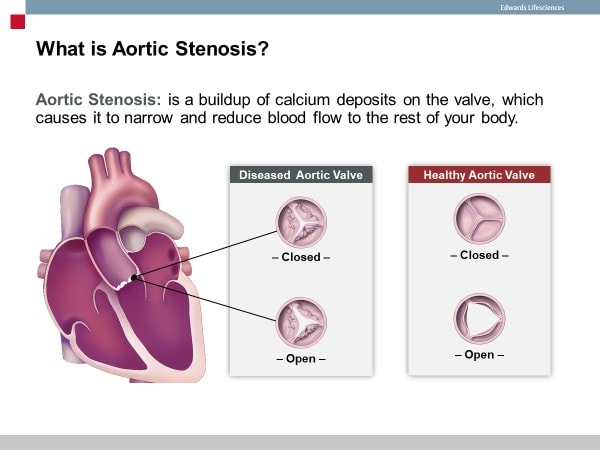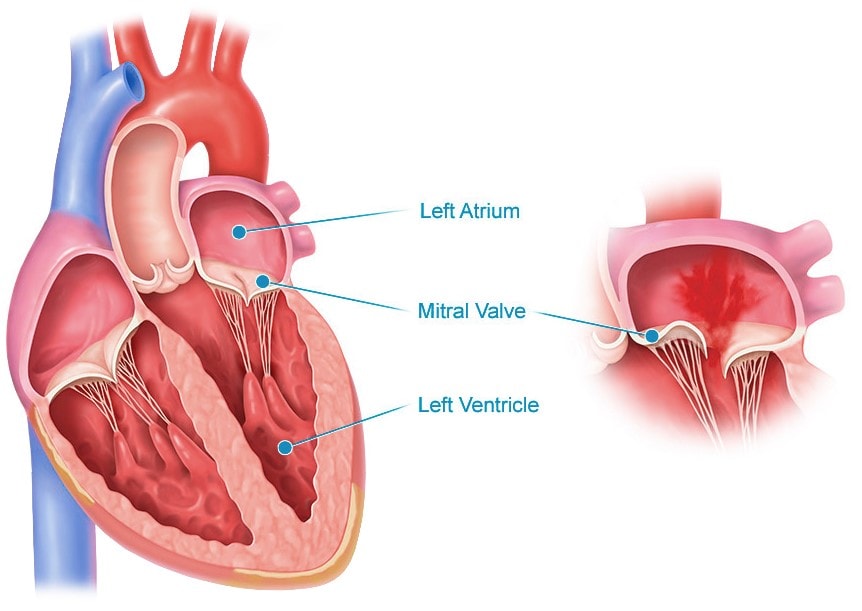Structural Heart Program
Structural heart conditions are diseases or damage done to the heart's wall, valves, or chambers. Some of these diseases are congenital, meaning they originate at birth. But others develop over time either with age or injury.
The evolution of therapies allows us to provide minimally invasive procedures to patients who suffer from Structural Heart Disease. These procedures are designed to reduce procedure times, improve recovery while also providing state of the art alternative therapies for those who qualify.
Is the Structural Heart Program For You?
If you have a structural heart condition and are seeking treatment, there are many different conditions that our program focuses on.
Types of Diseases:
- Aortic Stenosis - The narrowing of the aortic valve. Stenosis is caused when the leaflets of the valve become narrowed, thus reducing the amount of blood that goes to the body. This is a progressive condition that requires monitoring by a Cardiologist.

- Mitral Valve Regurgitation – Also known as a leaky mitral valve. Mitral regurgitation is a backflow of blood from the valve not closing properly. Most people will be told they have a heart murmur.

- Left Atrial Appendage Closure (LAAC) - The left atrial appendage is a small pocket in the upper chamber of the heart where blood can pool. For individuals with atrial fibrillation, they are at increased risk of clot formation and stroke requiring blood thinners. Patients who are at high risk for bleeding complications or cannot tolerate blood thinners, LAAC may be an option.
- Atrial Septal Defects/Patent Foramen Ovales – Atrial Septal Defects/Patent Foramen Ovales (ASD/PFO) is a hole in the wall of the heart between the two upper chambers of your heart. In most cases, no intervention is needed; however, if symptoms are present and the hole is large enough closure may be needed.
- Tricuspid Regurgitation - Heart valves are what allow blood to flow between the four chambers of the heart. Each valve has what are called “leaflets” (a flap) that opens to allow blood to flow out and close it to keep blood from going back into the valve. When one of these flaps doesn’t close appropriately it allows blood to flow back in which causes regurgitation.
Types of Structural Heart Procedures
The Saint Alphonsus Structural Heart Program offers various procedures to treat some of these conditions:
- Transcatheter Aortic Valve Replacement (TAVR) - A minimally invasive procedure provided to patients who have severe and symptomatic aortic valve stenosis. A committee will determine if TAVR is the best option for you, now available to moderate-risk patients.
- MitraClip - A minimally invasive procedure for those diagnosed with severe mitral valve regurgitation that involves using a device to clip the mitral valve leaflets and reduce the leak. Available for those who are not good candidates for mitral valve open heart surgery.
- Left Atrial Appendage Closure (LAAC) - This procedure includes implanting a small device into the left atrial appendage (LAA) permanently. This seals off the appendage, reducing the risk of blood clot formation and stroke, and allows patients to come off of blood thinners. Saint Alphonsus currently uses the WATCHMAN device.
- Atrial Septal Defects/Patent Foramen Ovales closure – If indicated, a device could be used to close the hole via a catheter-based approach. An atrial septal defect means there is a hole between the upper heart chambers. If left untreated, this hole can get larger increasing your risk for pulmonary hypertension, shortness of breath and fatigue.
- TriClip™ Procedure – this procedure implants a clip or clips in the tricuspid valve, located in the lower right side of the heart, to prevent blood from flowing back into the valve. Valve “leaflets” or flaps, can fail over time and this minimally invasive treatment improves tricuspid regurgitation.
- AGENT™ Drug Coated Balloon for Treatment of Coronary In-stent Restenosis (ISR)
Benefits of the Program
The program provides you with highly specialized care tailored to your specific condition. Some of the benefits of the program include:
- Trained team of specialists assigned to you.
- Minimally invasive procedures that allow for faster recovery, less pain, and quick procedure times.
- Integrated and coordinated care throughout the whole process.
Our Team in Idaho
All patients who have a structural heart procedure are assigned a personal care team. In addition to our team of coordinators, our multidisciplinary team consists of:
- Interventional cardiologists
- Cardiothoracic surgeons
- Cardiovascular Professionals
- Echocardiographers
- Radiologists
- Nurses
- Medical Assistants
Contact Us
For more information about our services or the conditions mentioned above, please contact our Structural Heart Clinic at 208-302-0005.

